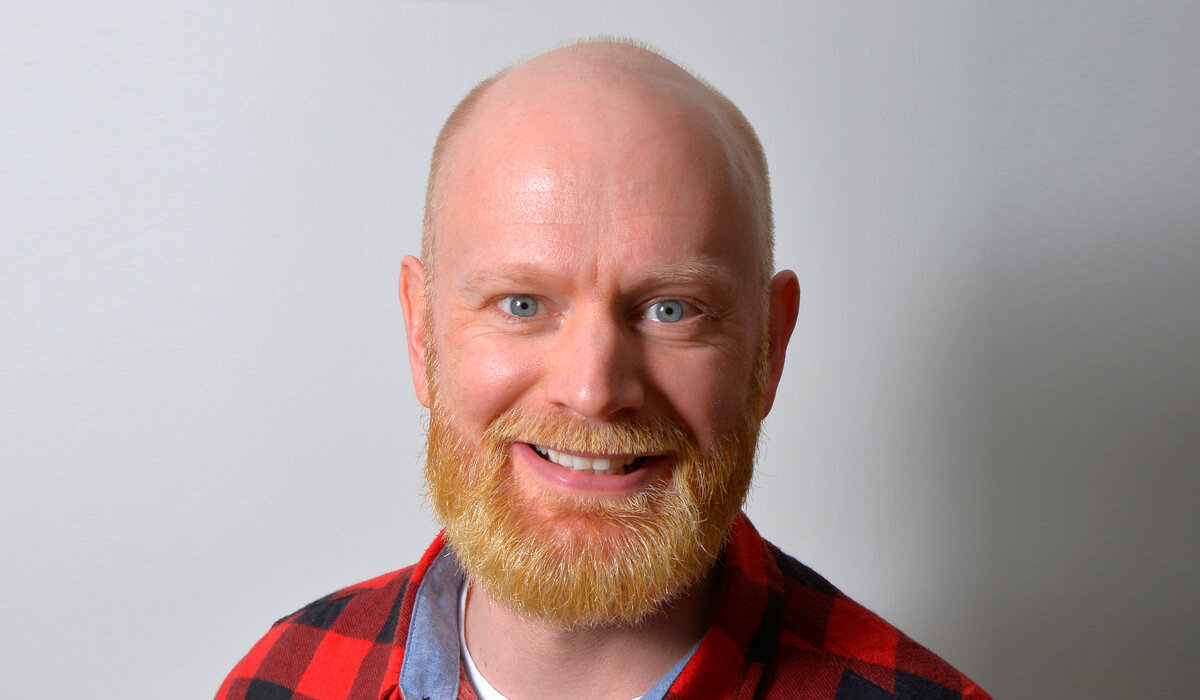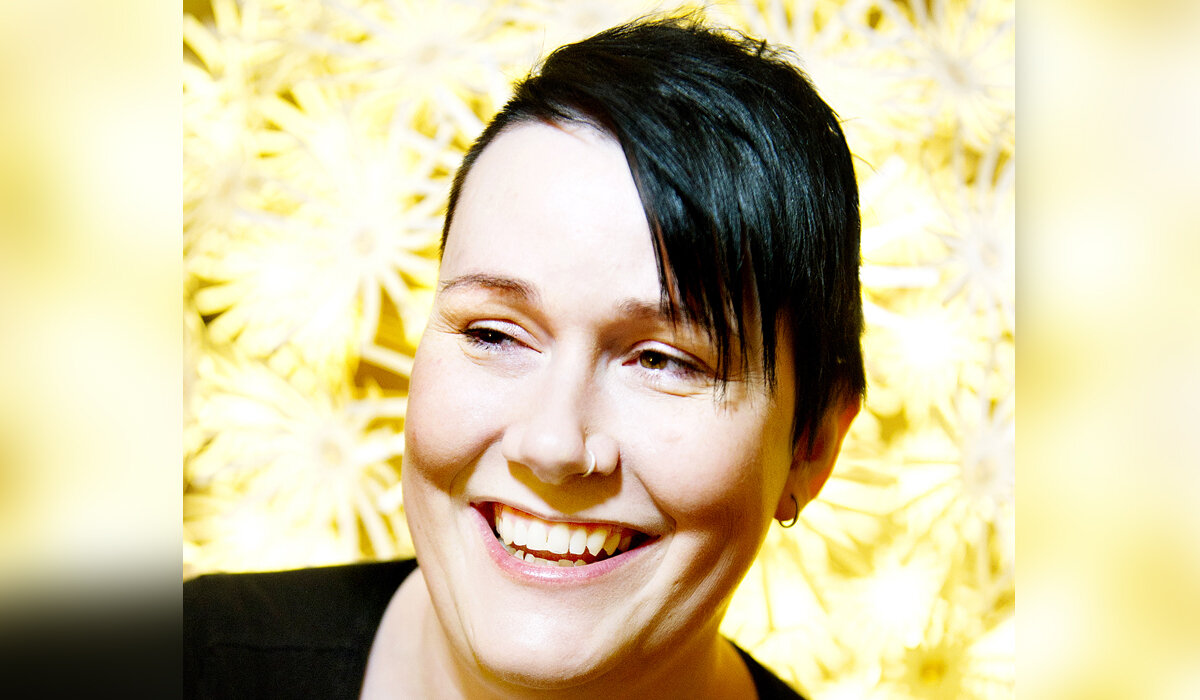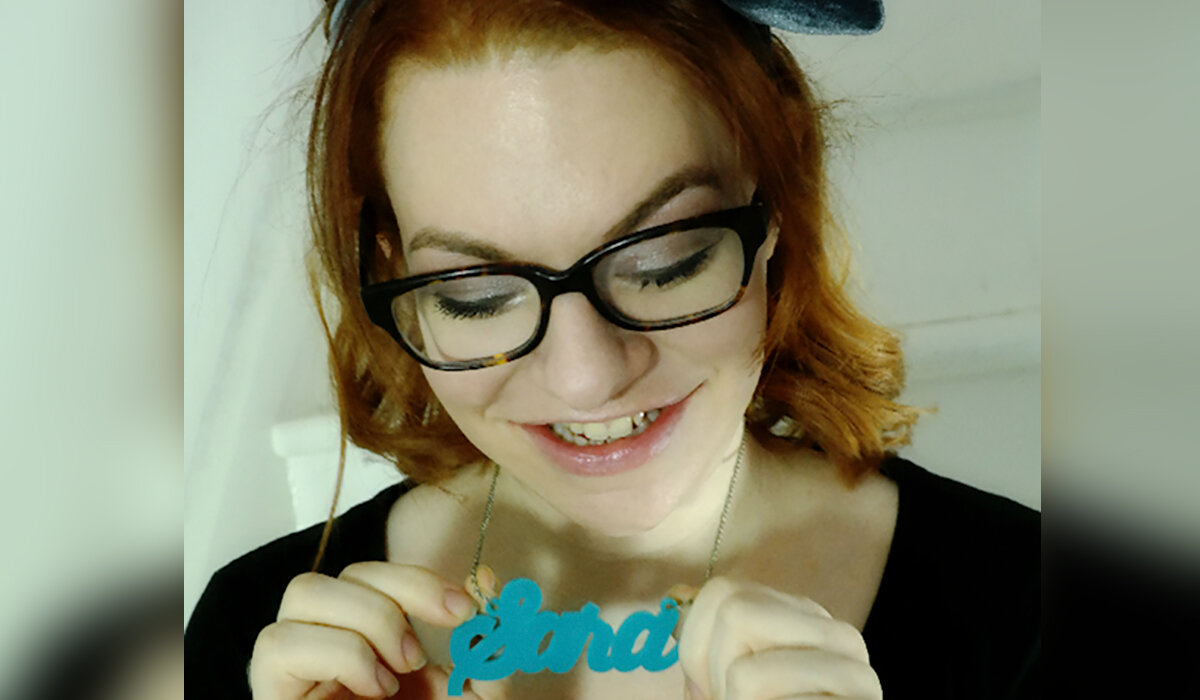
"My memories of events are different from the rest of the audience, so I try and bring an audience into my world."
John Pendal
- on doing stand-up comedy
Stories from the Spectrum: John Pendal
In this Stories from the Spectrum interview, we spoke to John Pendal.
Meet the comedian, John Pendal.
John has performed over 1,000 gigs across the UK, as well as solo shows across North America as well as Berlin, Melbourne, Oslo and Rome.
John tells us about why he’s talking about autism in his new stand up show (2019)...
What is being autistic like for you?
I’m a huge fan of lists, so here goes…
- At school, I really couldn’t cope with other kids not following school rules. I loved following rules, for example I was always on time and ready for every lesson with every book in my bag. I’d be upset when other children turned up late, disrupted lessons or hadn’t brought the right books with them.
- I’m physically uncoordinated. I can’t catch a ball and avoided all team games at school. Teachers said I was stubborn and uncooperative in sport, but they didn’t teach any sports you could do by yourself.
- I’m highly organised and plan all my trips out with military efficiency. I buy train tickets 12 weeks in advance to get the cheapest fare and then book the train before the one I need in case it’s cancelled or delayed. I really struggle with the thought of being late for a gig. Other comedians will book two or three gigs a night in the same city – I only book one because I can’t bear the thought of being late for the second or third one.
- I’m okay if plans change due to circumstances outside everyone’s control – then I’ll take charge and work out a back-up plan. But if plans change because someone hasn’t done something simple (like confirm a booking) then I really struggle. That’s why I tend to confirm everything myself.
- Throughout my life I’ve been plagued by conversations going wrong, and other people getting angry at me, without knowing why. With the help of my partner and a counsellor I’ve been learning why other people think I’m occasionally rude.
- I carry a rucksack with me everywhere I go, full of everything I might need. I don’t understand how people can leave a house with just a few items in their pockets.
As I wasn’t diagnosed as autistic in childhood, I learned to mask some of my autistic traits due to social pressures, but the traits I don’t mask I now see as an advantage. Although my friends make fun of me for carrying a bag everywhere I go, they appreciate it when I have headache tablets when they need them.
How did you get into stand-up comedy?
Comedy is the perfect job for someone who is shy or socially awkward, because the room goes dark and you’re the only one who’s talking! When a gig goes well and I make people laugh, I feel like I connect with people. I attended a comedy course in 2010 which ended in a showcase for family and friends. That was a great way to start because it means your first gig is a very friendly environment. The second gig was where the hard work began. I think a stand-up routine is like a conversation you can practice night after night until you get it right.
Why have you decided to talk about autism in your new stand-up comedy performance?
There can be a perception in society that autistic people “don’t get jokes” – we do, but we laugh at different things. It made it harder for me when I started comedy because when I wrote jokes the audience didn’t always agree with my sense of humour.
I can’t do “observational comedy,” because my memories of events are different from the rest of the audience, so what I can do is try and bring an audience into my world.
By embracing my differences and explaining how I see the world audiences are more likely to laugh with me, rather than be confused. That has been a big strength for international gigs and led to solo shows in in Atlanta, Chicago, Cleveland, Denver, Edmonton (Canada), Fort Lauderdale, Melbourne, Oslo, Rome and West Palm Beach without having to change my material. I still have moments where they turn into “staring and blinking” at me – but hopefully those moments are getting further apart.
"I can’t do “observational comedy,” because my memories of events are different from the rest of the audience, so what I can do is try and bring an audience into my world."

What advice do you have for autistic people who want to get into stand up?
I’d like to say embrace your uniqueness, but finding autistic people on the comedy circuit is actually pretty common! Overlooked skills you need to be a comedian include…
- Turning up to gigs on time: autistic people can be highly organised
- doing thousands of gigs to improve your craft: autistic people can enjoy repetition
- listening back to a recording of every show to find out what people laughed at and what they didn’t: autistic people can be very analytical.
There are some areas that will be more of a challenge, for example networking to try and get gigs booked, but I think everyone has strengths and weaknesses. Even non-autistic people can be shy.
What can we all do to create a society that works for autistic people?
My new comedy show is all about the things in my life which have given me a sense of shame, such as not knowing that I was on the autistic spectrum when I was younger and wondering why I felt different to the people around me. For me, a big help would have been a childhood diagnosis.
Other children complained that I was weird and answered questions too literally. Adults complained I had no common sense. If one person had said to me as a child “there’s a reason why you’re different and it’s okay” it would have made a world of difference. One of my aims of the current show is to help people feel better – by seeing someone who represents them on stage having been through a similar struggle.
I’m trying to create a world where comedy can be more accessible to autistic people, who can often struggle with social anxiety. Many people avoid going to live comedy because they think the comic will pick on them, so I announce at the start of every show “I don’t pick on people, if you need to leave during the show I won’t make fun of you.” Autistic people are welcome at all of my shows, but at the Edinburgh Festival I make sure one of my dates is listed as a “relaxed performance”, where people are especially welcome to come if they have autism or have sensory communication disorders. For example, front of house staff will be on hand to guide people to a quiet room if the show is too much.
Similar stories

"My stand-up is very personal. I tell stories, I overshare. So talking about being autistic has become a central part of my act."
Bethany Black
- on being a stand-up comedian
Read more

"I think there's a lack of understanding of how autism can present in girls, who are often socialised differently."
Sara Gibbs
- on accessing support as an autistic woman
Read more

The Spectrum magazine
Explore one of the UK's largest collections of autistic art, poetry, and prose. The Spectrum magazine is created by and for autistic people, and is available both online and in print.
Read the Spectrum





You are not alone
Join the community
Our online community is a place for autistic people and their families to meet like-minded people and share their experiences.
Join today